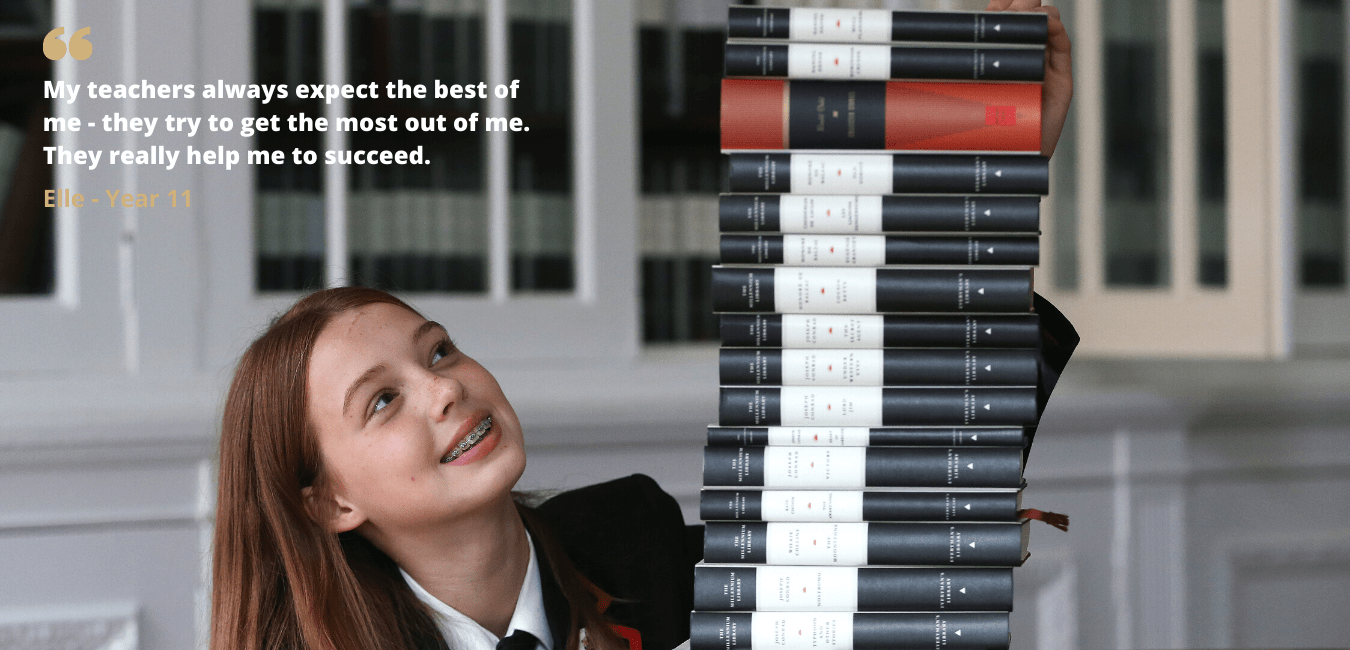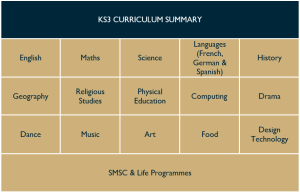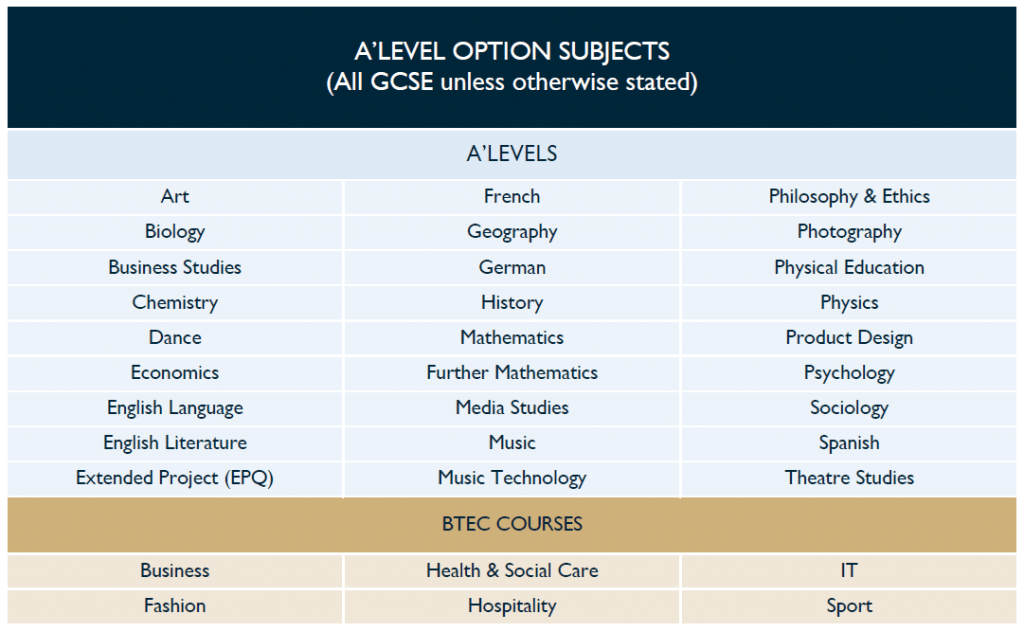
Our Curricular Vision:
We will offer a word rich curriculum that is based around challenging and inspiring content, and rooted in the skilful application of core knowledge. The curriculum is intentionally broad, encompassing the full range of creative and practical opportunities.
We will deliver this curriculum through explicit teaching, using a model of dual coding, modelling and retrieval practice, informed by cognitive science and contemporary research.
Our curriculum will encourage rigour and ambition for all students, providing opportunities to “take it further”, and challenge themselves at each stage.
Although a school does so much more than teach subjects, we make no apologies for placing a heavy emphasis on our curriculum. Its quality, and the rigour with which it is delivered, has a lifelong impact on the young people we serve.
We are very proud of the broad, balanced and rigorous curriculum we have at Lymm High School. It is something we give a lot of thought to and lies at the heart of the exceptionally high aspirations that we have for all students. Our academic outcomes have been superb over the last few years (in the top handful of comprehensive schools in the North West and in the top few percent of all schools nationally) and our insistence on putting the curriculum at the heart of what we do is a central reason for this. Continuing to evaluate, reflect upon and refine the curriculum where needed means we can be confident that we are able to carry on best meeting the needs of all of our students.
This page provides a brief outline of the curriculum model we operate. For more details of the specific content covered in each subject, at each key stage, please visit the individual subject pages below.
For subject-specific curriculum queries, please contact the relevant teacher listed on our ‘staff’ page.
A combination of budget pressures and worries about school accountability measures at KS4 mean that it is becoming increasingly common to see creative and technical subjects being squeezed out of the KS3 curriculum. However, at Lymm High School we place a very high value on these subjects in terms of their impact on young people’s lives and we pride ourselves on maintaining a broad and balanced, three year KS3 curriculum.
Therefore, all students study English, Maths, Science, French, History, Geography, RS, PE and ICT/Computing, and in addition, we provide a broad performing arts offer for all students that includes Drama, Dance and Music, as well as lessons in Art, Food and Design Technology.
These timetabled lessons are supplemented by an outstanding range of activities to promote social, moral, spiritual and cultural growth, including our Life Programme, which covers RSE, PSHE, and SMSC.
The great majority of students study a second language (either Spanish or German) alongside French during Years 8 and 9.
A small number of students will also be withdrawn, as appropriate, for focused, short-term numeracy and literacy interventions. This includes extra support through our ‘Upgrade’ programmes and other SEND-specific interventions, including dyslexia programmes and speech and language interventions. In addition, we run a range of reading recovery schemes including structured synthetic phonics programmes, literacy programmes and paired reading interventions. These interventions are organised in such a way that students still retain access to the full KS3 curriculum; they will never miss more than a handful of other lessons in any one subject, and the aim is to provide support such that their progress is accelerated across all subjects.

Challenge in the curriculum
We have long believed that all students should have access to a rigorous academic curriculum and are committed to providing our students with a challenging curriculum offer, where expectations are high and where every single student has the opportunity to realise their full potential.
We have produced our own assessment and tracking system, with a broad ‘flight path’ model being used to track progress throughout KS3. Aspirational targets are set equating to progress in at least the top 20% of schools and students nationally. KS3 assessment criteria have been carefully written to ensure greater challenge and to enable smooth progression to GCSE assessment in due course.
Schemes of work at KS3 were reviewed and re-written to coincide with the move to this new assessment and reporting system back in 2016. Departments were asked to look for every opportunity to increase expectations and challenge: for example, the texts taught in KS3 English are more challenging than ever after the introduction of more Shakespeare and more pre-twentieth century texts; Maths and Science changed their programmes of study to reflect the changes to a more challenging curriculum in primary schools; and Languages and Humanities deliberately began introducing more challenging content earlier on in KS3.
We have worked closely with our partner primaries in ensuring students’ transition to Lymm enables them to start work in Year 7 at the same level of challenge as that which they were tackling at the end of primary school. Subject leaders have spent time in our partner primaries and have subsequently trained their colleagues to ensure KS3 teaching is appropriately pitched. Primary colleagues have also spent time in Lymm High School looking at the curriculum and we have plans to develop these kinds of links further.
In addition to the mainstream curriculum, we provide many other opportunities and to enable our most academically able students to ‘Exceed and Excel’. This includes (but is certainly not limited to) our Scholars Programme, which builds aspiration and enables confidence and agency on the part of these students – and includes places especially reserved for students from disadvantaged backgrounds.
Summer Term 2024
The essential content of our KS3 curriculum is contained in Knowledge Organisers which are issued to students every term. Click here to access the knowledge organisers for the Summer term.
Knowledge Organisers
Year 7 Summer Term 2024
Knowledge Organisers
Year 8 Summer Term 2024
Knowledge Organisers
Year 9 Summer Term 2024
Spring Term 2024
The essential content of our KS3 curriculum is contained in Knowledge Organisers which are issued to students every term. Click here to access the knowledge organisers for the Spring term.
Knowledge Organisers
Year 7 Spring Term 2024
Knowledge Organisers
Year 8 Spring Term 2024
Knowledge Organisers
Year 9 Spring Term 2024
Autumn Term 2023-24
The essential content of our KS3 curriculum is contained in Knowledge Organisers which are issued to students every term. Click here to access the knowledge organisers for the Autumn term.
Knowledge Organisers
Year 7 Autumn Term 2023-24
Knowledge Organisers
Year 8 Autumn Term 2023-24
Knowledge Organisers
Year 9 Autumn Term 2023-24
Spring Term 2023
The essential content of our KS3 curriculum is contained in Knowledge Organisers which are issued to students every term. Click here to access the knowledge organisers for the Spring term.
Knowledge Organisers
Year 7 Spring Term 2023
Knowledge Organisers
Year 8 Spring Term 2023
Knowledge Organisers
Year 9 Spring Term 2023
Summer Term 2023
The essential content of our KS3 curriculum is contained in Knowledge Organisers which are issued to students every term. Click here to access the knowledge organisers for the Summer term.
Knowledge Organisers
Year 7 Summer Term 2023
Knowledge Organisers
Year 8 Summer Term 2023
Knowledge Organisers
Year 9 Sumer Term 2023
Guidance on self quizzing
Guidance around how to use your Knowledge Organisers for self-quizzing and revision can be found here
Students choose options in Year 9 to start study in Year 10. They are guided through this choices process via informative assemblies, a comprehensive ‘Choices’ booklet and guidance interviews with staff.
All students are able to study any subject if they really want to and the aim is always to ensure everybody has as broad and ambitious a range of subjects as possible. Students with SEND who require particular support and students eligible for the Pupil Premium are seen individually by members of the Senior Leadership Team or our SENDCo to talk through the process and ensure the most appropriate subjects are selected for each individual.
Our curriculum offer is robust and challenging and all courses are carefully selected to ensure this remains the case for all students. Early each year we look at the range of courses on offer to make sure that they:
- Are worthwhile courses in their own right – i.e. they are interesting and rewarding to study
- Lead to rigorous, high value qualifications that enable clear transition pathways to the next
stage of education - Meet a range of students’ needs
- Can be well-taught by staff available with the appropriate qualifications and experience
We have always – and will always – ensure that all subjects offered are in the best interests of our students: they are all robust and valid qualifications of high quality that will provide rigour and challenge for our students and enable quality transition pathways. We have deliberately avoided searching for courses that might be easier for students to pass and would benefit the school in terms of published performance measures, but which are not of sufficiently high value in terms of students’ future pathways.
All KS4 students study English (Language and Literature), Maths, Science, PE and the Life Programme (which includes religious education). In addition, they choose four subjects from the following range of option subjects.


Top sets in Year 11 maths also take the Further Maths GCSE. This additional qualification is an excellent grounding for A’ level maths.
Selected SEND students will, in consultation with parents, take ‘Study Plus’ as one of their options where they will gain additional support in literacy and numeracy as well as in the study of their other subjects. These students will still choose three conventional options and be studying eight either GCSE or equivalents.
The government is keen to ensure a rigorous and balanced curriculum by encouraging as many students as possible to study for the English Baccalaureate (‘Ebacc’). This means, in addition to the core of English, Maths and Science GCSEs, opting for a Language (i.e. French, German or Spanish) and either Geography or History. Current school policy is to require all students take at least one Ebacc subject as one of their four options, to ensure that they have a sufficiently broad range of traditionally academic qualifications. We do not currently insist upon students taking the full Ebacc because we believe the curriculum at Lymm High School is already of comparable breadth and rigour. However, we fully endorse the underlying principles of the Ebacc and certainly encourage students and families to consider it carefully as part of the options process. In particular, there are strong arguments in favour of choosing to study a language to GCSE.
All Year 11 students all have an individual guidance interview leading into their sixth form study, as well as special assemblies, an open evening, careers evening and various other transition events to ensure they make the right choices for them.
Most students choose three A’ levels or equivalent, with some being given the option of studying four. We also classes in GCSE English and Maths for students who want or need to re-take these subjects.
We are fortunate to be able to offer a wide range of Level 3 courses, enabling students to go on to the most appropriate further education or training for the next stage of their lives. As with KS4, we are very careful to ensure that all of the qualifications we offer are rigorous, of high quality and with clear progression routes at the end.

As with KS3 and KS4, all students also take part in our ‘Life’ programme where they study important personal, social and health issues as well as those relating to British values.
In addition, the Gateway Programme is highly successful in providing the highest quality mentoring and support for students in their higher education aspirations. We also offer a specific programme for students aspiring to Oxbridge, working closely with these two institutions.
We are exceptionally proud of our Careers Education, Information, Advice and Guidance programme. Our NEET figures are remarkably low: just 1% for each of the last few years at aged 16 and even lower for those leaving our sixth form, suggests that all of the work we do on CEIAG is having a very positive impact. They are also testimony to the impact of our carefully considered curriculum, enabling as it does clear and strong pathways at each point of transition.
Our extra curriculum provision is outstanding. Students have access to a huge variety of trips and enrichment opportunities and participation figures are high. For us, this is an essential part of a high quality post-16 education – not just a ‘nice to have’ add-on – and we work hard to maintain the quality and breadth of this programme.
Finally, our ‘Values and Ethos in Action’ document demonstrates our determination to enable our students to develop as ‘socially responsible citizens’, and points to the huge range of opportunities we provide in order to facilitate this.